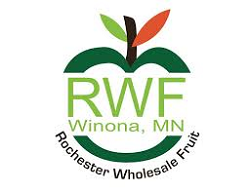I remember vividly the first time I had the opportunity to engage in an industry event. It was 1985, my second year as a produce manager, and a large national association was hosting its annual convention in New Orleans.
Our company was asked to create a display that would highlight the lifestyle and culture of south Louisiana. We set out to grab attendees’ attention and make them feel like they were down on the bayou and not in a hotel ballroom.
It took weeks of planning, research and coordinating logistics. We even used the Louisiana State Museum to help us with the artifacts and props we needed to create an authentic backdrop for a national audience, which included then-Vice President George Herbert Walker Bush, who would be giving a keynote address.
Imagine this — we actually went into a swamp and cut cypress knees and collected palmetto and Spanish moss from live oak trees that lined the banks of bayous in the area, all to bring a real feel and fragrance to the display.
I remember arriving in downtown New Orleans early that morning with carloads of material and a truckload of taxidermy mounts of native Louisiana wildlife on loan from the state museum. We had mud boats, pirogues, nets, cages, even a mini campsite on a pallet. Our team worked desperately to finish the display on time, but we ran late into the evening.
But when it was revealed the next day to attendees, they were blown away by the intricacies of the display and how real it all looked — and it was real. We even added some Cajun zydeco music in the background to create the right atmosphere.
To say we felt accomplished was to say that we took our work seriously and wanted to deliver a great experience to attendees.
What was learned
Though our company was small at the time with only four locations, we had gained a reputation as being unique, creative and willing to tackle what might seem to some like it wasn’t possible to accomplish. But we thrived on such opportunities.
What I learned was that I relished that experience and quickly realized I wanted to be more involved and engaged in the industry in which I worked: retail grocery. I could not have imagined then where that passion would take me years later.
Why companies choose to engage
There are many reasons why retailers select to engage in their industry: mostly to make new connections, gain new insights, find new innovations and products, and to educate themselves and their teams. These are the basic reasons for attending and bringing back to the company a return on the investment in time and resources. But beyond these reasons, what is being missed?
Why companies choose not to engage
Some companies determine they do not need these opportunities or that the cost of time away from the business outweighs the benefit. Many times, companies expect their supply partners to present all of the greatest and newest products and services they would have seen and experienced at an event. So, why attend?
It’s this way of thinking that keeps many companies from seeing the trees through the forest. In essence they think they have and know all they need.
Being at the table
Over the course of my career connected to the fresh produce industry and retail, I look back at that first experience in 1985 in particular and what it did by lighting a fire to set me in motion for what I wanted to accomplish for myself, my team, my company and the industry I served.
What I quickly realized was that being present and engaged wasn’t always about what I brought back, but rather what I gave.
Risk of not being at the table
In my daily routine, I hear people across the supply chain ask why certain retailers are not participating. The reasons vary, and I have covered some of them already.
In my own experience in retail, I was in an environment where learning everything we could about everything that was trending, new, exciting and possible was expected. It wasn’t a “gift” to get to attend an industry function; it was an expectation to do so. When a company chooses not to be engaged, what they risk is greater than what the investment could ever be.
And therein lies maybe the most common denominator: Some companies are focused inwardly and believe they have all the tools and resources needed to keep innovating and creating better experiences and growing business. They already know what they need to know, but it’s what they don’t know that could benefit them — if only they would engage.
Placing a value on value
When a company looks at engagement only as an expense and not an investment, it is much easier to just say no. But when a company realizes the possibilities of being engaged, being present and connected, and building a broader network that can benefit their business, the value it brings their brand is exponentially greater than any price promotion or massive display they can build.
The investment in people beyond wage compensation has been proven to motivate a team and to have them see the potential of their personal growth within the organization.
Explore, Experience, Expand, Engage
As a produce director, I made it a part of our strategy and business plan to have teams attend events, be part of educational programming and travel together in groups to learn more about the business of fresh produce.
Over the years, those efforts not only brought great benefit and value back to our business, but it also made our brand stronger within the industry. Companies understood our brand and culture and wanted to partner with us; in turn, we had the opportunity to give back by serving as volunteers across several industry associations, and many on the team received accolades and awards on a national level.
But it did not happen by accident. It was an investment — in people and our brand.
Make note of these key points:
- Explore — What is it you need to know, and how are you going to gain that information?
- Experience — The produce industry is a global one. It awaits you to be part of it.
- Expand — Knowing what you know is only half of what you need to know.
- Engage — Giving back is possibly the greatest ROI for your company.
Speaking of engagement, the International Fresh Produce Association will be hosting the 2024 Retail Conference May 1-2 at the Sheraton Wild Horse Pass Resort in Phoenix. Registration is open, and seats are limited. Retailers from throughout the U.S. and Canada will be in attendance along with grower-shippers, processors and solution providers who will gather to connect and network to bring value to their business and brands.
Always remember the “Three I’s of Merchandising:”
- Impact
- Impulse
- Incremental
Happy selling!
Joe Watson spent 30-plus years as the director of produce for Rouses Markets and was named Produce Retailer of the Year and honored as one of The Packer 25, both in 2014. Watson now serves as a vice president of retail, foodservice and wholesale for International Fresh Produce Association.














